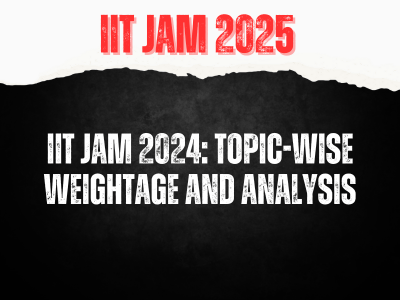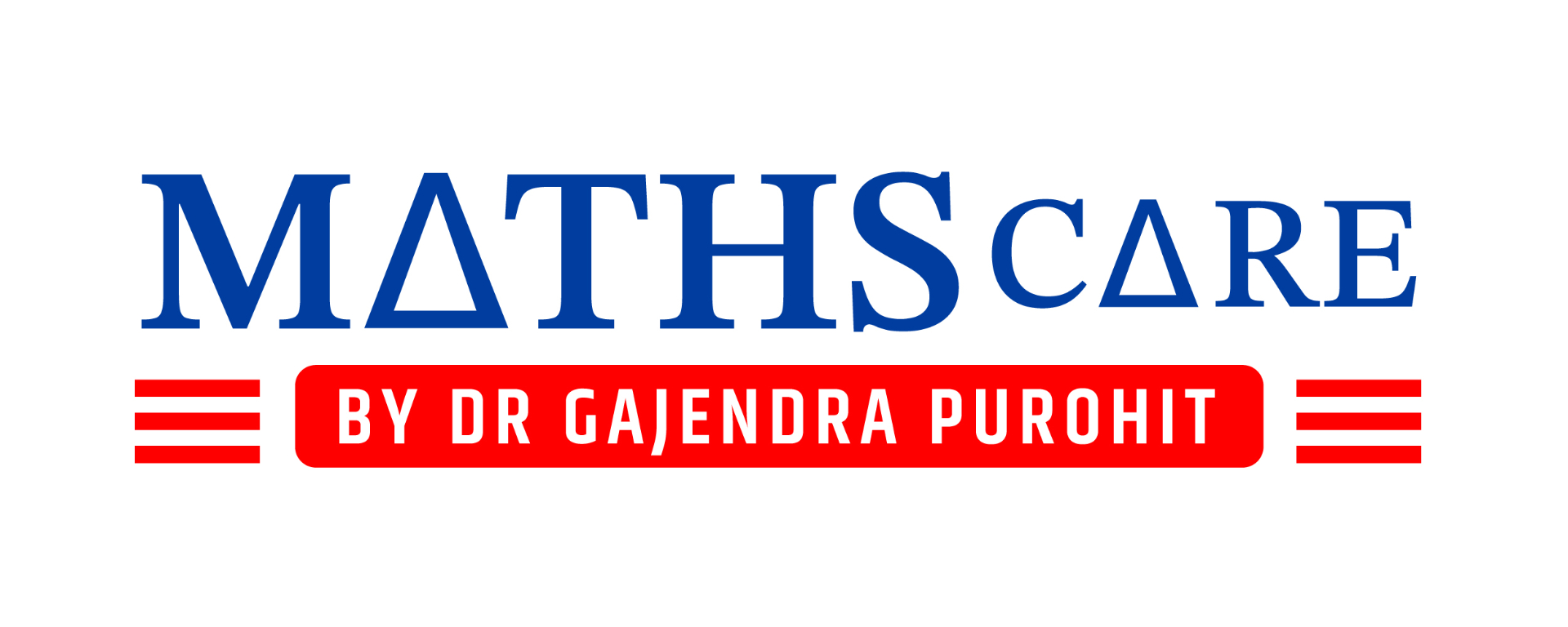
IIT JAM 2024: Topic-Wise Weightage and Analysis
IIT JAM 2024: Topic-Wise Weightage and Analysis: Introduction
The IIT JAM (Joint Admission Test for M.Sc.) serves as a vital gateway for students aspiring to join esteemed Indian Institutes of Technology (IITs) and other premier institutions for postgraduate studies in science. Known for its rigorous nature, IIT JAM demands a robust preparation strategy that is both well-planned and focused. One effective way to enhance your preparation is by understanding the topic-wise weightage from previous years, which can guide you in optimizing your study efforts and improving your chances of success.
About IIT JAM
IIT JAM is an annual entrance examination designed to offer admissions to various M.Sc. programs at prestigious institutions like IITs, NITs, IISERs, and more. The exam covers a wide range of subjects, including Mathematics, Physics, Chemistry, and Biotechnology, each requiring a strong conceptual foundation and problem-solving abilities. The challenge of IIT JAM lies in its high level of difficulty and competition, making it imperative for aspirants to thoroughly understand the syllabus and exam pattern, and to engage in consistent and focused study sessions.
Cutoffs
The cutoffs for IIT JAM are crucial indicators of the minimum scores needed to qualify for admissions. These cutoffs fluctuate annually based on several factors such as the number of candidates, the difficulty level of the exam, and the total number of available seats. For the Mathematics paper, cutoffs have historically ranged between 11 to 25 marks for the General category, with corresponding adjustments for other categories. Analyzing these cutoff trends helps aspirants set realistic score targets and refine their preparation strategies, ensuring that they aim for achievable yet ambitious goals.
Paper Pattern
IIT JAM’s exam pattern is distinctive, featuring three types of questions: Multiple Choice Questions (MCQs), Multiple Select Questions (MSQs), and Numerical Answer Type (NAT) questions. The examination comprises 60 questions, distributed across three sections, and carries a total of 100 marks. The format and distribution of questions among MCQs, MSQs, and NATs have varied slightly over the years. A thorough understanding of this pattern is essential, as it allows students to develop the necessary skills to tackle each question type effectively, thus maximizing their overall score.
Admitting Institutes
A successful performance in IIT JAM opens doors to several top-tier institutions. While IITs are the primary admitting institutes, the JAM score is also accepted by other leading institutions such as NITs, IISERs, and CFTIs. In 2024, over 21 IITs and more than 30 other prestigious institutions are expected to offer admissions based on IIT JAM scores. Each of these institutions has its specific criteria and cutoffs, so it is important for students to be well-informed about the requirements of the institutes they wish to join, allowing them to tailor their preparation accordingly.
IIT JAM 2025 Dates
For students planning ahead, the IIT JAM 2025 exam is anticipated to follow a timeline similar to that of previous years. Typically, the examination is conducted in February, with the official notification and application process commencing in September of the preceding year. Results are usually declared in March. Being mindful of these dates is crucial for effective planning, as it ensures that students allocate sufficient time for preparation, revision, and timely submission of applications, leaving no room for last-minute rushes or missed deadlines.
Topic-Wise Weightage and Analysis
An analysis of the topic-wise weightage from previous IIT JAM Mathematics exams provides valuable insights into which areas to focus on during preparation. Based on the last five years, the average marks distribution is as follows:
- Sequence and Series: ~7 marks
- Group Theory: ~6 marks
- Linear Algebra: ~9 marks
- Function of One Variable: ~7 marks
- Function of Several Variables: ~3 marks
- Integral Calculus: ~4 marks
Focusing on topics with higher average weightage can significantly improve one’s performance in the exam. However, a balanced approach that includes all key areas is recommended to ensure comprehensive coverage of the syllabus.
Conclusion
Cracking IIT JAM 2024 requires more than just hard work; it demands a strategic approach rooted in a deep understanding of the exam pattern, cutoffs, and topic-wise weightage. By analyzing trends from previous years and prioritizing high-weightage topics, aspirants can craft an effective study plan that maximizes their chances of success. IIT JAM is not merely a test of knowledge but a challenge that requires the application of concepts in problem-solving. With dedication, consistent practice, and a well-thought-out strategy, achieving a top rank in IIT JAM is an attainable goal for any determined aspirant.
Courses Offered:



Buy our best-selling books on Flipkart and Amazon
Tag:Admitting Institutes, Cutoffs, Entrance Exam, Exam Preparation, exam strategy, Function of One Variable, Function of Several Variables, GROUP THEORY, iit jam, IIT JAM 2024, iit jam 2025, integral calculus, Joint Admission Test for M.Sc., Linear Algebra, MATHEMATICS, Paper Pattern, Postgraduate Studies, sequence and series, Topic-Wise Weightage



